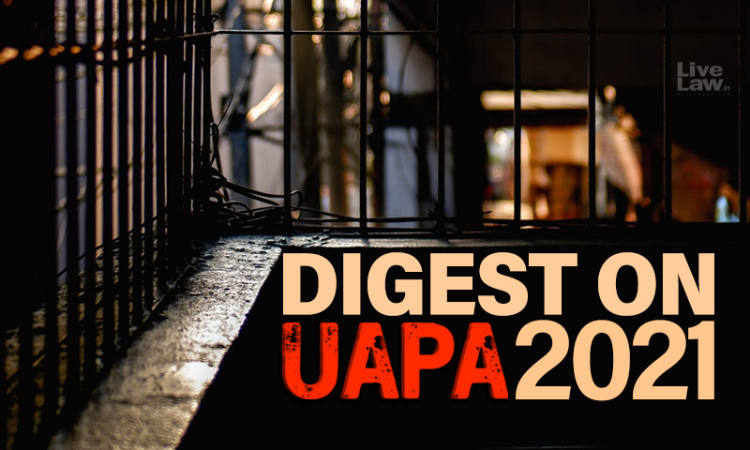UAPA Annual Digest 2021 : Important Judgments Of Supreme Court & High Courts
Aaratrika Bhaumik
8 Jan 2022 11:33 AM IST

Next Story
8 Jan 2022 11:33 AM IST
As we step into 2022, LiveLaw brings to you a yearly Round-up of important cases pertaining to the controversial Unlawful Activities (Prevention) Act, 1967 from the Supreme Court, High Courts and trial courts across the country. This yearly digest includes 90 judgments and orders. Supreme Court1. Violation Of Fundamental Right To Speedy Trial Is A Ground For Constitutional Court To Grant Bail...
